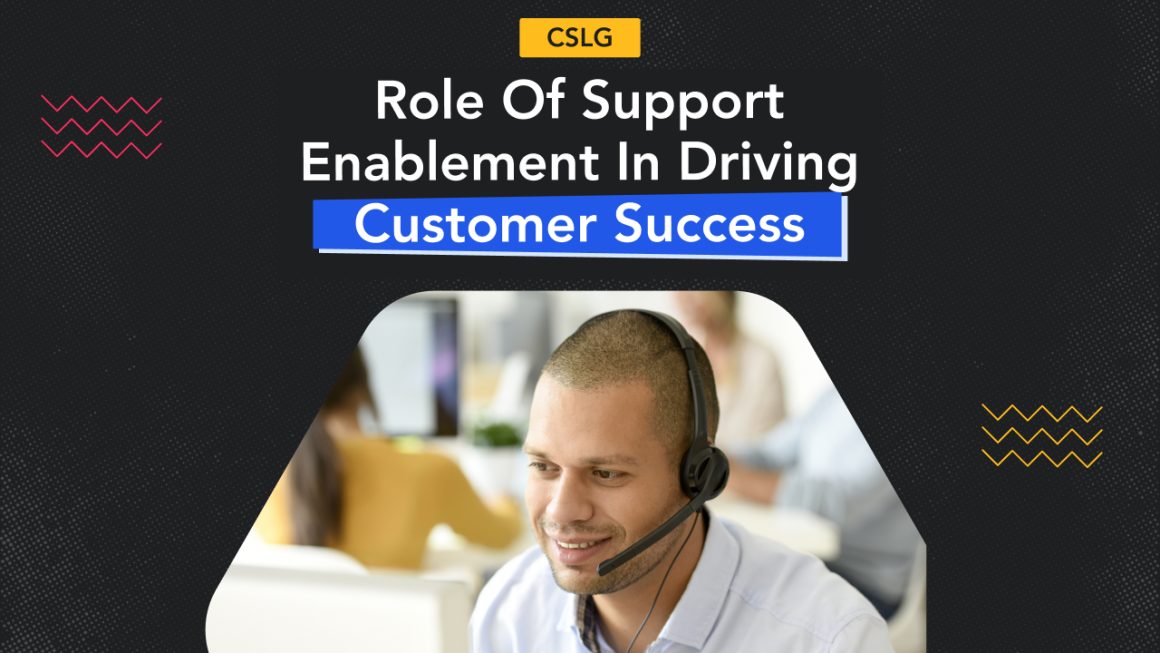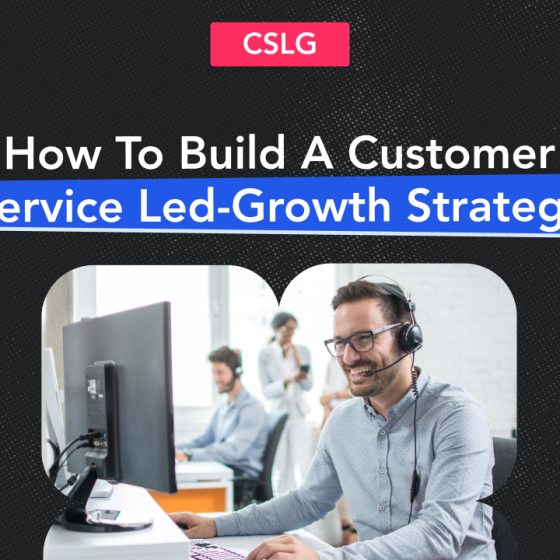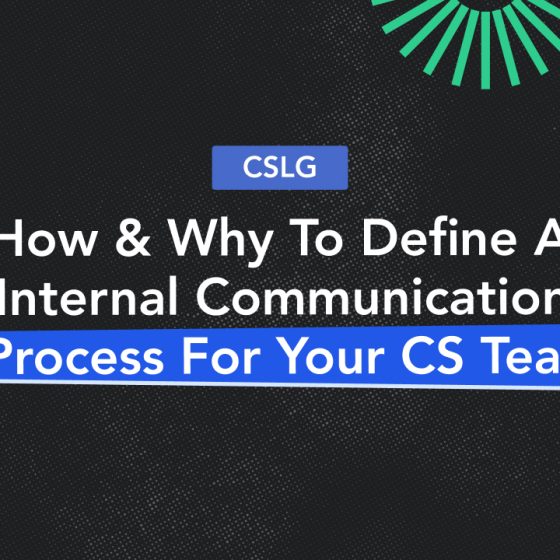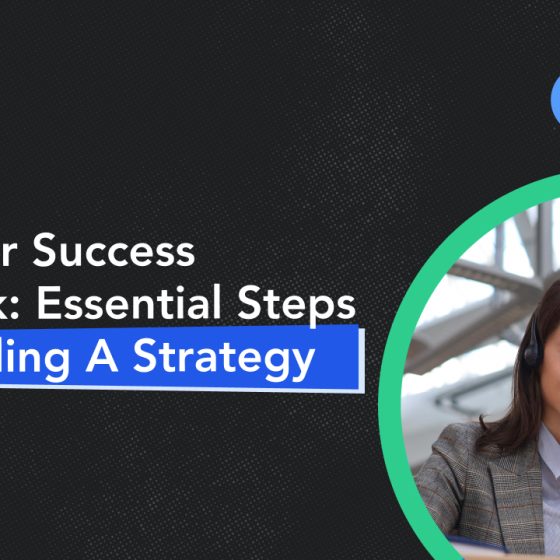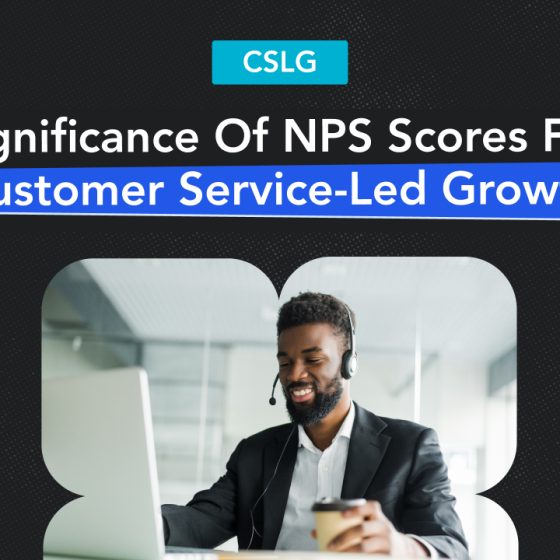Ever experienced the frustration of reaching out to customer support only to encounter representatives who seem clueless about your needs? We’ve all been there, and it’s not a pleasant experience.
That’s where customer support enablement comes into play. In simple terms, support enablement equips customer service teams with the tools, training, and resources they need to provide exceptional support. It’s the secret sauce that transforms mediocre support into extraordinary experiences and drives customer service-led growth.
In this article, we’ll explore the importance of support enablement for customer service teams and how it can transform how businesses interact with their customers. So, if you’re tired of complaints about frustrating support encounters, read on to discover how customer support enablement can make all the difference.
What is Customer Service Enablement?
Imagine two lines running parallel to each other. These lines represent the customer and the customer service team, respectively. In an ideal scenario, these lines should always move forward together, in sync, ensuring a seamless and positive experience for the customer.
Without proper support enablement, these lines can become disjointed, leading to frustrated customers and a struggling customer service team.
Customer service enablement equips and empowers the team with the necessary tools, resources, and knowledge to effectively meet customer needs and expectations.
It involves:
- Providing ongoing training to the customer support staff
- Access to relevant information when providing support
- Streamlined processes to enable the team to deliver exceptional customer service consistently.
This enablement is crucial in achieving customer service-led growth, as it allows the team to resolve customer issues efficiently, build customer retention, and ultimately drive business success. By investing in support enablement, your business can cultivate a customer-centric culture, enhance customer satisfaction, and differentiate themselves in a competitive market.
Why is Customer Service Enablement Important?
Customer service enablement is vital to supporting a successful customer service (CS) team. It provides them the necessary resources, knowledge, and tools to excel in their roles and deliver delightful customer experiences. Let’s dive further into why customer service enablement holds significant importance:
01. Improved Customer Satisfaction and Retention
Think about a time when you had a problem with a product or service. How did you feel when the CS representative swiftly addressed your concern and provided a satisfactory solution?
By enabling CS teams with the necessary resources, and expertise, your business can enhance customer satisfaction and increase the likelihood of customer retention. Satisfied customers are more likely to become loyal brand advocates, referring others to your business and contributing to long-term revenue growth.
02. Increased Efficiency and Productivity
Consider the challenges CS teams face including the lack of streamlined processes and access to relevant information. Without support enablement, response and resolution times can be lengthy, frustrating customers in the process.
However, by investing in support enablement, businesses enable their CS teams to work efficiently and handle more inquiries. With ongoing training and tools, teams can provide timely assistance, reducing customer wait times and enhancing overall productivity.
03. Better Communication and Collaboration
Effective customer service requires seamless communication and collaboration within the team and across departments. Customer service enablement facilitates sharing of uniform information, best practices, and insights among team members.
It ensures everyone is on the same page regarding customer expectations, product updates, and company policies. With improved communication and collaboration, the team can provide consistent and coherent responses, leading to a better overall customer experience.
04. Empowered and Motivated Team Members
No one likes a CS representative who doesn’t know what should be done. By investing in support enablement, your business can empower the CS team members to support the customer better.
Ongoing training, access to information, and the right resources boost their confidence in handling customer interactions. Empowered and motivated team members are more likely to go the extra mile, providing personalized support and building strong customer relationships.
Three Pillars of Customer Service Enablement
Customer service enablement stands on three pillars that hold it strong. The three pillars of customer service enablement for customer service-led growth are:
01. Recruiting
The first pillar of customer service enablement revolves around recruiting and hiring the perfect team members for customer success. It’s all about finding those exceptional individuals who possess the skills, qualities, and mindset that align with delivering outstanding customer support.
The CS agents are the face and voice of the company, the ones who directly interact with customers, and can make or break the overall customer experience.
Creating a CS staff profile is one way not to hire the wrong people. By carefully crafting an ideal customer support staff profile, your company can attract individuals who are not only qualified but also empathetic, customer-focused, and adept at finding tailored solutions.
Creating a CS staff profile also emphasizes the importance of hiring team players who can enable each other and take the customer experience to the next level. Collaborative individuals who work well together can leverage their combined knowledge and skills to address complex customer issues more effectively.
The impact of recruiting the right CS staff goes beyond customer satisfaction. It directly affects customer service operations’ return on investment (ROI). When you have a team that understands the product/service intricacies and has the necessary expertise—leading to a boost in customer service-led growth!
Reduced handling time improves operational efficiency, cost savings, and optimized resource allocation. Additionally, a highly skilled and motivated CS team has the potential to upsell or cross-sell products/services, contributing to increased revenue generation.
02. Onboarding
The second pillar of customer service enablement focuses on onboarding, which involves training and integrating new customer service team members into the organization.
Onboarding sets the tone for their entire experience with the organization, impacting their confidence, engagement, and effectiveness. Your business can ensure that new team members feel supported, equipped, and ready to contribute to customer service-led growth by providing a well-structured and comprehensive onboarding program.
A perfect onboarding process involves various elements to help new team members integrate seamlessly into their roles.
Firstly, it includes a thorough process walkthrough that familiarizes them with the company’s mission, values, and culture. This sets the foundation for aligning their work with the organization’s overarching goals and customer-centric approach.
Next, comprehensive training is essential, covering product knowledge, customer service best practices, tools/software, response times, service standards, and the tone of responses. This ensures that new team members are equipped with the necessary skills and knowledge to handle customer inquiries effectively and provide exceptional service. Training should emphasize prompt response times, adhering to established service standards, and maintaining a courteous and professional tone in all customer interactions.
Providing access to resources is also vital during the onboarding process. This can include knowledge bases, FAQs, internal documentation, and mentorship programs. These resources allow new team members to find information and seek guidance when needed, fostering independence and a continuous learning mindset.
Additionally, assigning a mentor or buddy to support and guide new hires can significantly enhance their onboarding experience and integration into the team.
03. Ongoing Enablement
In today’s dynamic business landscape, customer expectations are constantly evolving. New technologies, industry trends, and customer preferences emerge, making it essential for CS team members to stay informed and up-to-date. Ongoing enablement is crucial in providing team members with the tools, resources, and opportunities to enhance their skills and knowledge continuously.
By investing in continuous learning and development, your business can enable the customer service team to remain at the forefront of industry trends and best practices. This pillar acknowledges that customer service is not a static function but a dynamic one that requires ongoing improvement. It ensures that team members are equipped to handle new challenges, leverage emerging technologies, and implement innovative approaches to enable service-led growth.
Ongoing enablement encompasses various elements to support continuous learning. It includes:
- Industry Resources: Providing access to webinars, workshops, and conferences where team members can expand their knowledge and learn from industry experts.
- Tailored Training Sessions: Conduct training sessions to address specific skill gaps or emerging trends in the industry.
- Skill-Building Exercises: Regularly engaging team members in skill-building exercises, such as role-playing scenarios and case studies.
- Collaborative Knowledge Sharing: Fostering a culture of learning and development by encouraging team members to share knowledge, insights, and best practices like using ChatGPT for supporting customers.
- Mentorship Programs: Establish mentorship programs where experienced team members guide and support new or less-experienced colleagues
- Latest Tools: An AI powered customer service solution or knowledge base to learn from can enable your team to perform more productively.
By promoting continuous learning as an integral part of the CS team’s culture, you can inspire the team members to seek growth opportunities and stay motivated.
Essentials of Effective Service Enablement
Want to practice effective service enablement? Here are the key elements you should look for in your customer service enablement process.
01. Tailored training and onboarding programs
Tailored training and onboarding programs are crucial for a support team’s success. Each team member has unique skill sets, experiences, and areas of expertise. By providing customized training and onboarding programs, the organization ensures that the support team has the specific knowledge and skills to assist customers effectively.
Tailored programs help team members quickly familiarize themselves with the company’s products or services, internal processes, and customer service standards. This approach increases their confidence, productivity, and ability to handle customer inquiries with accuracy and efficiency.
02. User-friendly and up-to-date documentation
Documentation plays a pivotal role in enabling support teams to deliver high-quality service. It is a comprehensive reference guide for new and experienced team members. The documentation should be user-friendly, well-organized, and easily searchable, allowing support agents to find the information they need quickly.
Keeping the documentation up-to-date ensures the team can access the latest product features, troubleshooting steps, and solutions to common customer issues. Clear and accurate documentation empowers the support team to provide accurate and consistent assistance to customers, resulting in improved customer satisfaction.
03. Access to the right software tools and resources
Your CS team needs access to the right software tools and resources to enable a support team to excel in their roles. These tools can include customer service platforms, ticketing systems, live chat platforms, knowledge bases, and collaboration tools.
These tools help streamline and automate support processes, allowing agents to efficiently manage customer inquiries on multiple channels, track interactions, and provide timely resolutions. Additionally, with AI emerging as the new trend they need access to those tools as well.
04. Ongoing coaching and feedback
Continuous coaching and feedback, along with the deployment of software that provides individual CSAT scores, are essential elements of support enablement. Regular coaching sessions and performance evaluations offer opportunities for support team members to enhance their skills and address knowledge gaps.
Managers can provide constructive feedback based on individual CSAT scores to help agents improve customer interactions, problem-solving abilities, and communication skills. This approach promotes professional growth, boosts team morale, and ensures the consistent delivery of high-quality support services.
05. Collaboration and knowledge sharing among team members
Support teams can benefit greatly from collaboration and knowledge sharing among team members. Encouraging a culture of collaboration fosters an environment where team members can learn from one another, exchange best practices, and leverage collective expertise to solve complex customer issues.
Collaboration can take various forms, such as regular team meetings, brainstorming sessions, peer mentoring, and assisting each other for specific queries. To ensure efficient collaboration, it’s important to provide your CS team with tools that make collaboration a breeze.
How does Customer Support Enablement Better the Customer Experience?
Here is how customer support enablement helps in improving the customer experiences and bringing customer service-led growth.
01. Understanding and Meeting Customer Needs
Customer support enablement enables representatives better to understand customer needs, pain points, and preferences. Support teams can enhance their empathy and problem-solving skills through comprehensive training programs, access to customer data, and continuous learning opportunities.
By effectively addressing customer concerns and offering tailored solutions, customer service representatives can provide more value to customers. This increases customer satisfaction, loyalty, and a positive word-of-mouth..
02. Rapid Content Pipeline Development
An essential aspect of customer support enablement is reducing the time spent by your agents on repetitive queries by creating and managing content that helps customers find solutions independently. This is where the content pipeline comes in! The content pipeline empowers customers to resolve their issues efficiently and reduces the need for repetitive support requests.
03. Enhancing Cross-selling and Up-selling
Customer support enablement equips customer service representatives with the knowledge and skills to identify opportunities for cross-selling and up-selling. By understanding customers’ goals, challenges, and pain points, support teams can recommend additional products, services, or features that align with their needs.
This personalized approach helps customers realize the full potential of their purchased products or services while providing relevant suggestions for enhancing their experience. When done tactfully and genuinely, cross-selling and up-selling efforts driven by customer support enablement can increase customer satisfaction and profits for the business making your support team a key revenue driver.
To Sum it All Up
The importance of support enablement for a customer service (CS) team cannot be overstated. Through the three pillars of customer service enablement – recruiting the right team, onboarding new members effectively, and providing ongoing enablement – organizations can lay the foundation for achieving sustainable customer service-led growth.
Think about the positive impact support enablement can have on customer satisfaction, team performance, and overall business growth. Take the necessary steps to recruit and build a skilled CS team, implement robust onboarding processes, and provide ongoing learning and development opportunities.
In this era of ever-increasing customer demands, organizations that prioritize customer success enablement will differentiate themselves from the competition and build long-lasting customer relationships. Talking about customer relationships, Helpwise is the perfect fit for your support team to start building them.
